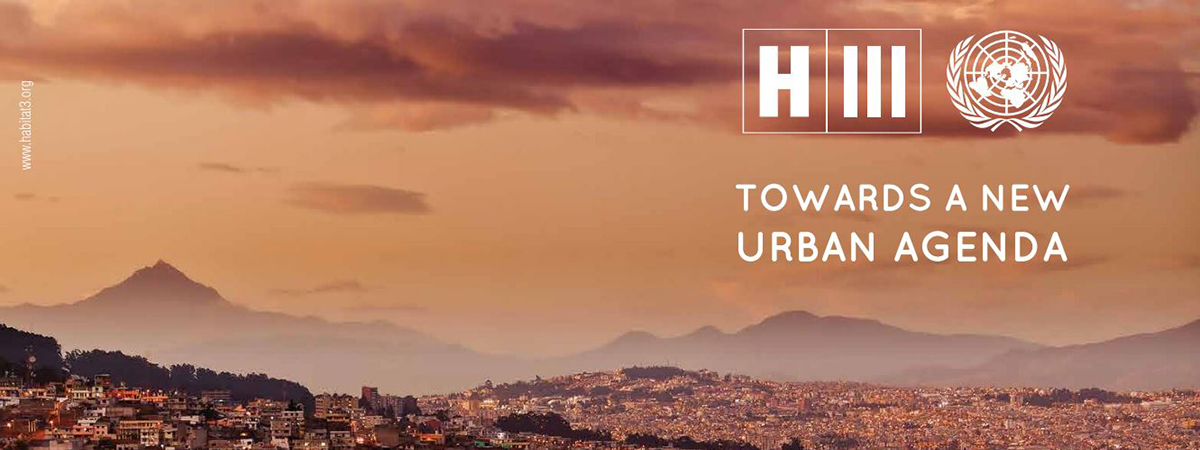The presence of regions in Habitat III

Regions have the determination to actively participate in Habitat III. Not in vain, one year ago ORU Fogar decided to hold a Bureau and a General Assembly in Quito, taking advantage of the event. We want to be present because we honestly believe that the debate on the New Urban Agenda is not the sole domain of cities. The territories, politically represented by regions and intermediate governments, have a lot to say. That’s why, in Quito, we are not only going to hold our own events, but we are also going to actively participate in the debates proposed by UN Habitat.
At the time of writing these notes, we must express our notorious satisfaction with the content of the Draft of Final Declaration of Habitat III dated 10th September. Already in its first point, it mentions the participation of regional and local governments in the New Urban Agenda. Afterwards, throughout the whole text, the need to coordinate global and national policies with regional and local policies is reiterated. And, most importantly, it always points out the main role of regions and municipalities in the agenda’s implementation.
Our biggest satisfaction is to see recognised the need for regions and municipalities to have enough funding to undertake the assigned responsibilities, as highlighted in our Summit last April in Rio de Janeiro. The draft is therefore positive, even though we would have probably put more emphasis on the need of planning, territorial equilibrium and on the willingness of protecting rural life against the absorbing influence of cities.
This recognition made by one of the United Nation’s agencies, unthinkable until recently, is a sign of the times, but it is certainly also due to the large lobby task done by people from the local and regional world. Indeed, this success has mainly to do with the most immediate work by the Global Taskforce from Local and Regional Governments. ORU Fogar was there, as well as in many other fronts, but the biggest achievement corresponds to UCLG. In the management of the Global Taskforce, its Secretary General, Josep Roig, and his whole team, have been working hard for many months and it is important to congratulate them as their effort has been rewarded.
More than 40,000 people are expected to attend the meeting in Quito. Half of them will be Ecuadorians. The other half will be people from all over the world. Hundreds of mayors and people from the local world will be present, as well as governments from all countries; as it should be in a big UN event such as Habitat III. The presence of Presidents, Regional Councillors and Governors, will also be very notorious. Seeking to prevent the event from being excessively city-centred, we are trying to enhance the visibility of the representatives of the regional world, who will be transmitting our territorial balance discourse.
We’ll remind that the region is the only balance tool between the rural and urban population. And we will explain that, if today cities suffer the suburbs phenomenon, the construction of marginal neighbourhoods and the subsequent margination of their young population, is a consequence of having neglected the infrastructures and basic services. A good functioning of regions, with the participation of cities, is the only solution to avoid these social and financial problems. The key idea is to create “an equipped territory and beautiful cities”. It won’t be easy to introduce this discourse given the overwhelming presence of the local and urban community, and of big cities. Anyway, we are going to be there.
Abdelkébir Berkia
ORU Fogar’s Vice-President








































































